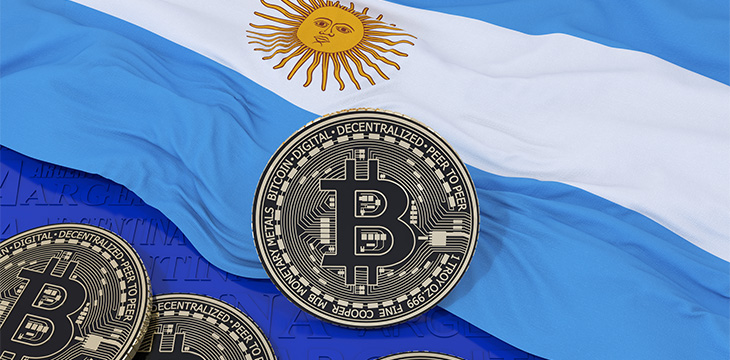|
Getting your Trinity Audio player ready...
|
The head of Argentina’s central bank is concerned and closely watching, digital currencies, but he has no issue with those that chose to accept them for payments. He criticized digital currencies for their volatility, lack of legal tender status and being prone to cyber-attacks as some of the reasons they can’t be used as currencies in the South American country.
Miguel Pesce, the president of the Central Bank of Argentina (BCRA), was speaking at an event organized by a local fintech organization. He told the attendees that the central bank is aware it needs to do more to educate and protect investors.
“We believe that we have to do [the] work of education, explaining to the population what these instruments are about to avoid generating situations in which, due to misinformation, someone makes an investment over which he has no control,” he remarked.
Pesce criticized the term “cryptocurrency” as crypto “refers to something hidden, opaque.” This is in line with the BSV blockchain’s position that Bitcoin, as envisioned by the original Satoshi Nakamoto white paper, is traceable on the immutable and transparent ledger.
Elas captured this in their submission to the Australian Senate, stating, “Importantly, Bitcoin does not seek to be recognised as a ‘cryptocurrency’ nor does it seek to represent itself as a tool for anonymity or crime. It is a utility ledger providing a traceable and utile cash system which is applicable to a vast number of business cases and opportunities.”
The Argentinian central bank head further stated that digital currencies were meant to be used as just that—currencies, not an investment instrument.
Argentina’s monetary system has seen high inflation in the past decade, leading many to shun the local currency, the peso, and opt for the U.S. dollar. To curb the exodus to the greenback, Pesce decreed in 2019 that citizens can only purchase up to $200 in USD monthly. It also forced exporters to convert their USD payments to the peso.
Such decrees have led many to explore digital currencies as an alternative to the USD and peso payments. However, as Pesce stated during the event, even if citizens receive payment in digital currencies, they may need to convert to the peso.
“This is so, it is a rule of the central bank,” he told the attendees. “One can receive payment in the instrument or in the goods one wants: in the same way that one can receive a payment in species, one can receive a payment in cryptocurrencies.”
However, the central bank will be strict on its oversight of the industry to ensure that it’s not used to circumvent exchange regulations.
Watch: CoinGeek Zurich panel, Consumer Payments, Incentives & Reward with Bitcoin

 02-22-2026
02-22-2026 




